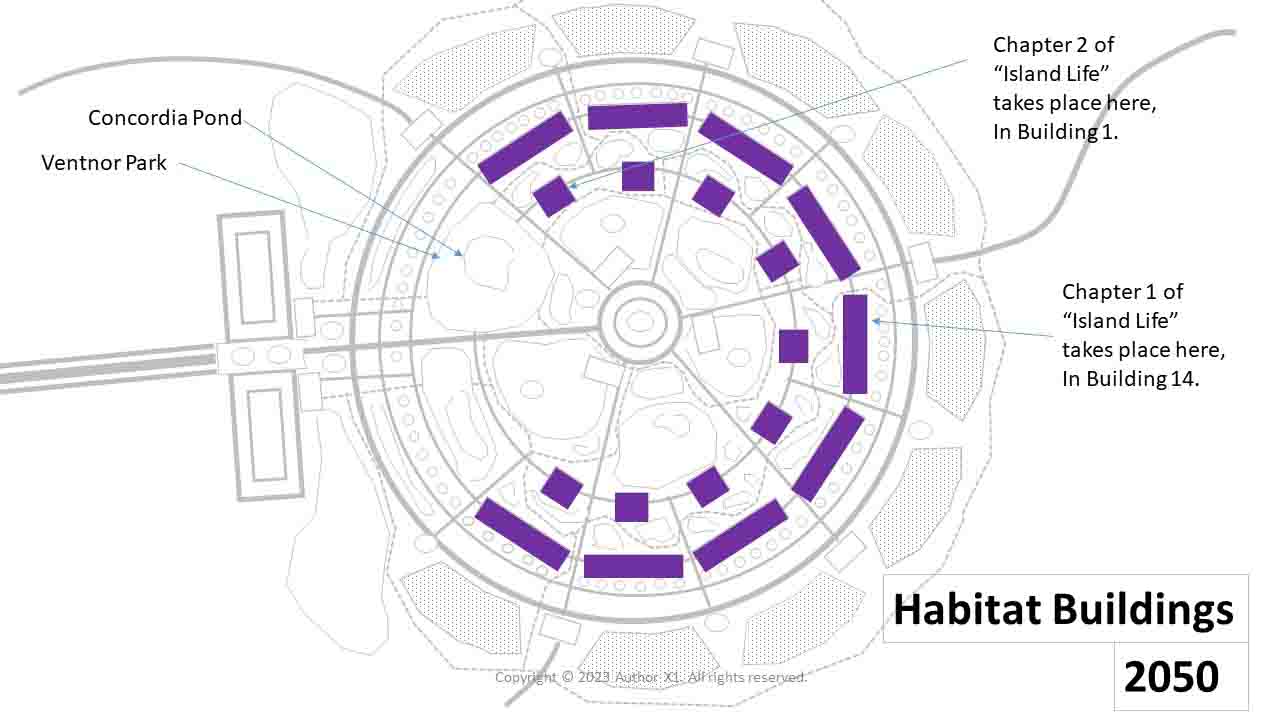
Aureole habitat buildings are designed to
support maximum population density, with minimal
resource consumption. Each of the longer purple
rectangles (called 4XW units, arranged along the
aureole node's "outer ring"), can house four times
the number of people that can be housed in the
smaller units (1XW units, arranged along the aureole
node's "inner ring").
Aureole
residents are packed into these high-rise buildings
like sardines. There are no windows. Residents stay in tiny closet-like
"booths", where they
spend most of their time supine, on "leisure
lounges", connected to an immersion system. The
immersion system interfaces with hardware that is
surgically embedded in each aureole resident's head, to immerse the resident in
luxurious virtual worlds and fantastic
adventure spaces. These virtual worlds are
experienced with each of the five traditional
senses, making them seem completely realistic and
convincing to the immersed subject.
Aureole
residents
typically remain supine on their
leisure lounges and immersed in virtual space for
all but a couple of hours each day. Residents spend
those few
hours of real-world time (they call it "sustain
time") performing hygiene services, getting
exercise, consuming food, and receiving medical
treatment as necessary. They change booths every
couple days, as directed by the scheduler, so that
bots can access and clean the spaces.
Aside from housing citizens, approximately half of
the space in a given habitat building is configured for
other uses, including:
-- Hydroponic or aeroponic food-growing.
--
Utility space (air handling/power dist./etc...).
--
General storage.
-- Maintenance/repair (for use by bots only).
-- Conference
rooms.
-- Dining rooms.
-- Medical
stations.
-- Care facilities for
organic children.
-- Water
Closets (WCs), for body hygiene & waste.
-- Elevators.
-- Trans-X
stations, for vehicle loading/unloading.
-- Airborne drone landing pads (rooftop).